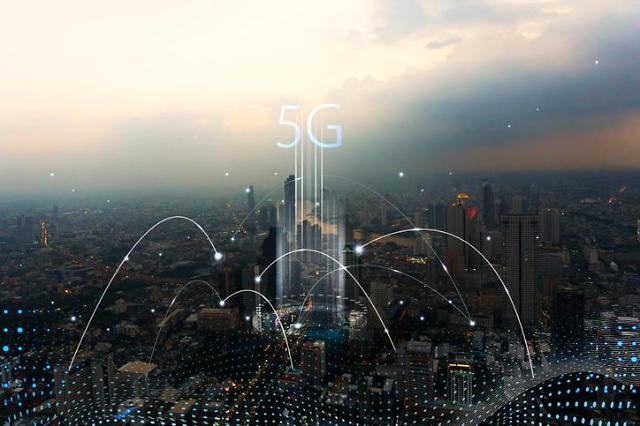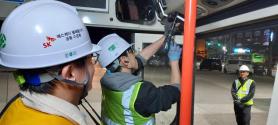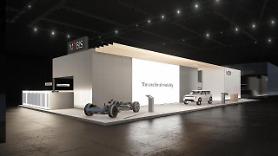
SEOUL -- Recent market research data by OOKLA, an internet access performance analysis firm, showed that Seoul provides the fastest 5G mobile download speed in the Asia-Pacific region. South Korea, which commercialized 5G mobile data communication in 2019, has some 30 million 5G mobile phone service subscribers.
According to OOKLA, the average download speed of 5G data communication in Seoul stood at 533.95 megabits per second while the average 5G download speed in Kuala Lumpur stood at 523.44 megabits per second and Singapore at 387.15 megabits per second.
Seoul was also among the top cities with the highest average 5G upload speeds. The South Korean capital city showed an average speed of 46.54 megabits per second, following Kula Lumpur which showed 63.88 megabits per second.
The internet access performance analytics company's data showed that about 47.8 percent of all South Korean mobile communication service users were hooked onto 5G networks. China had 41.1 percent of users connected to 5G mobile networks while Japan had 32.9 percent.
South Korea's 5G mobile communication service was first introduced in April 2019. The number of users increased to some 11.8 million in 2020 and 20.9 million in 2021. Since the latest generation mobile network service was launched, mobile carriers competitively gave away hefty rewards and subsidies for users who subscribe to the new 5G service.
According to a 2020 survey of 800 5G service users, conducted by the Korea Consumer Agency, 34 percent said that they registered to a 5G smartphone service because they wanted to use the latest 5G smartphones. 29.4 percent said that they switched to the ultra-fast mobile data service because mobile carriers provided larger amounts of subsidies than 4G services.
Data released by the science ministry showed that there were 28,059,343 users subscribed to 5G services as of December 2022. Meanwhile, LTE mobile data service is steadily losing subscribers to stand at 46,217,456, down 4.3 percent from 2021's 48,288,764.
Other than ordinary mobile data networks, LTE broadband is widely used in South Korea for public purposes including the management of vehicle-to-everything (V2X) networks, autonomous vehicle driving assistant infrastructure, and emergency notification services.
Copyright ⓒ Aju Press All rights reserved.


![[K-Tech] Samsungs Galaxy S25 hits 3 million sales in Korea — fastest pace yet for 5G Galaxy phone](https://image.ajunews.com/content/image/2025/08/05/20250805154352304019_278_163.jpg)

